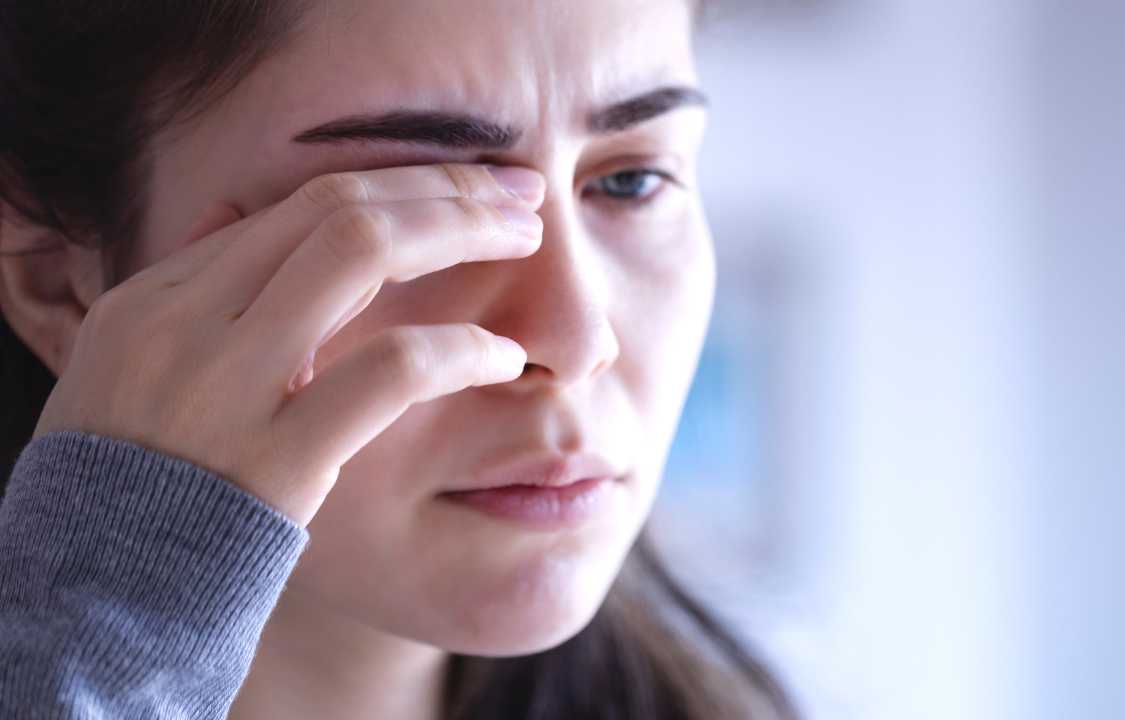Health Care
Here’s Why Your Eye Is Twitching—and How to Make It Go Away
Although eye twitches are annoying, they are rarely serious.
Eye twitching, medically known as myokymia, is a common and usually harmless phenomenon that occurs due to the overstimulation of the muscles around the eye. While it’s generally not painful, it can be incredibly bothersome and distracting. Eye twitching can take various forms, and its causes range from everyday factors like stress and lack of sleep to underlying eye conditions. In this comprehensive exploration of eye twitching, we’ll delve into its types, causes, and ways to alleviate it, all while emphasizing the importance of seeking medical attention if needed.
Types of Eye Twitching
Eye twitching can manifest in different ways, and understanding these variations can provide insights into its underlying causes. Some common symptoms and types of eye twitching include:
1. Repeated Eyelid Twitching: This is the most common type of eye twitching and usually involves involuntary contractions of the upper eyelid. It’s often transient and may last a few days before resolving.
2. Light Sensitivity: In some cases, increased sensitivity to light can trigger eye twitching. The discomfort from bright lights can exacerbate the twitching.
3. Blurry Vision: Eye twitching can occasionally be accompanied by blurry vision, further contributing to the annoyance and distraction it causes.
4. Blepharospasm: This is a more severe form of eyelid twitching where the eyelid completely closes involuntarily. Unlike the common eyelid twitch, blepharospasm can be uncomfortable and persist for more extended periods.
5. Chronic Eye Twitching (CET): In some individuals, eye twitching becomes chronic and bothersome. CET is more common in women and often occurs more frequently during cold weather. It may be associated with facial nerve issues.
Causes of Eye Twitching
Understanding the underlying causes of eye twitching is crucial for effective management. While stress and lack of sleep are common triggers, several other factors can lead to eye twitching. These include:
1. Stress: Stress and anxiety can overstimulate the eye muscles, leading to twitching. Managing stress through relaxation techniques like meditation or yoga can be helpful.
2. Lack of Sleep: Sleep deprivation can exacerbate eye twitching. Prioritizing good sleep hygiene and ensuring an adequate amount of rest can mitigate this cause.
3. Caffeine: Excessive caffeine intake can stimulate the nervous system, potentially leading to eye twitching. Reducing caffeine consumption or eliminating it entirely may alleviate symptoms.
4. Alcohol: Similarly, excessive alcohol consumption can trigger eye twitching. Moderation or abstaining from alcohol may help reduce eye twitching.
5. Medications: Certain medications, such as those for migraines, can have eye twitching as a side effect. Discussing alternative medications with a healthcare provider may be an option.
6. Eye Conditions: Underlying eye conditions, including glaucoma, blepharitis, uveitis, or corneal abrasions, can cause or exacerbate eye twitching. Treating the underlying condition is essential.
7. Dry Eye: Eye twitching can be related to dry eye syndrome, which may result from factors like autoimmune diseases, aging, or medication use. Artificial tears can provide relief.
8. Screen Time: Prolonged exposure to electronic screens can strain the eye muscles. Taking regular breaks to rest the eyes and focus on distant objects can reduce eye twitching associated with screen time.
How to Manage and Prevent Eye Twitching
In many cases, lifestyle changes can effectively alleviate or prevent eye twitching. Identifying the specific cause is essential for tailored management. Here are steps to manage and prevent eye twitching:
1. Prioritize Sleep: Ensure you get sufficient, restful sleep by practicing good sleep hygiene and maintaining a consistent sleep schedule.
2. Reduce Stress: Implement stress-reduction techniques like meditation, deep breathing exercises, or yoga to manage stress effectively.
3. Limit Caffeine and Alcohol: Moderation or complete avoidance of caffeine and alcohol can reduce the likelihood of eye twitching.
4. Eye Drops: Over-the-counter artificial tears can help relieve eye twitching related to dry eye.
5. Screen Time Management: Take breaks when using electronic screens to rest your eyes and prevent strain.
When to Seek Medical Attention
While eye twitching is usually benign and short-lived, there are situations where it’s essential to consult a healthcare provider or eye specialist:
1. Persistent Eye Twitch: If your eye twitching persists for more than a week despite lifestyle changes and remedies, seek medical advice.
2. Complete Eyelid Closure: If the twitching leads to the complete closure of your eyelid, it’s important to consult a healthcare provider.
3. Involvement of Other Facial Areas: When the twitching extends beyond the eyelid to involve other parts of your face, medical evaluation is warranted.
4. Eye Symptoms: If you experience redness, swelling, discharge, or any other unusual eye symptoms alongside twitching, seek prompt medical attention.
5. Drooping Eyelid: If your upper eyelid droops in association with twitching, it may indicate an underlying issue requiring medical assessment.
In rare instances, persistent and extremely severe eye twitching can raise concerns as it may serve as an early indicator of more grave underlying medical conditions such as Bell’s palsy, multiple sclerosis (MS), or Tourette syndrome. Therefore, timely assessment by a qualified healthcare provider or an experienced eye specialist is of utmost importance in these particular cases.
To sum it up, although eye twitching is generally innocuous and can frequently be mitigated by making lifestyle adjustments, it is crucial to be attentive to enduring or highly pronounced symptoms and to seek medical attention when deemed necessary. Gaining insight into the potential root causes and adopting wholesome habits can significantly contribute to relieving and preventing eye twitching, consequently enhancing your overall ocular health and overall well-being.

